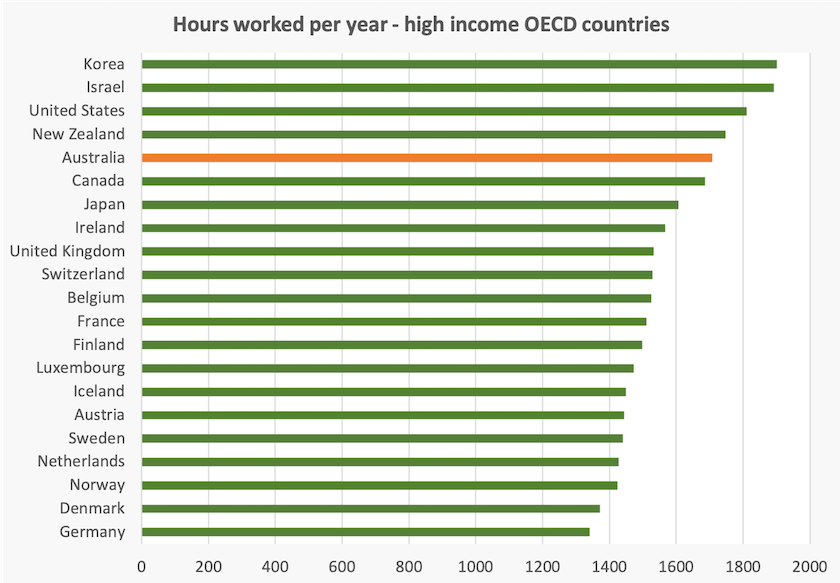Public ideas
Ross Gittins’ advice for academics and journalists
On his 50th anniversary with the Sydney Morning Herald, Ross Gittins was invited to give a speech in the Great Hall of the University of Sydney. He has an edited version on his website: My speech at Sydney University’s Great Hall.
He warns that academics “should never yield to intimidation by those who can see no further than immediate income”. Within this context he goes on to offer two specific pieces of advice, related to the very purpose of a university:
Academics must never be ashamed to proclaim their belief in the value of knowledge for its own sake. Knowledge doesn’t have to have a monetary value to be of value.
and
Universities should never be ashamed of their preoccupation with theory rather than practice.
Both rebut the idea that the prime function of a university is to turn out “job ready” graduates. The “job-ready” engineer who doesn’t understand the basic scientific theory behind his or her profession will be left stranded when there is transformative innovation in the discipline, as happened 60 years ago when vacuum tubes gave way to semiconductors.
He turns to his own profession, journalism, where he warns about the risks when journalists become dependent on politicians for leaks and advance notice of developments. (It would be more honest if they left their media companies and went to work for the government.)
His final advice is that there should be much more explanatory journalism.
There is no rule saying journalists should not be educators or explainers. Newspapers and their online equivalents find space to publish recipes for grilled scorpions and croque madame, or ways to improve your garden. Perhaps they could help us understand ideas that may guide us to wiser political choices. For example:
The difference between finance and economics – so that a government cannot lay claim to “sound economic management” when all it has done is to balance the bank account, while ignoring economic management.
The difference between government consumption and investment – so that people can appreciate the economic case for governments to borrow to fund assets such as housing and infrastructure.
The difference between market value and use value – so that house owners don’t think a change in the market value of their house makes them wealthier or poorer: it’s still the same house.
The difference between real and nominal interest rates – so that people do not leave their money in accounts paying miserable interest rates, effectively giving money to the banks.
The difference between climate and weather – so that people’s understanding of climate change isn’t influenced by occasional hot/cold/wet/dry spells.
The difference been constitutional provisions and legislations – so that unscrupulous politicians cannot spread lies about “details”.
In this regard Gittins sets a fine example in his journalism, helping people understand often quite complex economics.
How about a 4-day week?
Historically Australia made world-leading progress in reducing working hours. Victoria passed the Eight Hours Act in 1916, which became national four years later. In 1948 there came the 38-hour week, and in 1973 four weeks’ leave.
Then progress halted.
John Quiggin, in his post Four-day work weeks are inevitable, notes that while productivity has risen over the last fifty years, the hours we put in at work haven’t changed.
The arithmetic is simple. He writes:
Even since the turn of the present century, labour productivity has risen by 20 per cent. That is, we now produce in four days what used to take us five days as recently as 2000.
He’s suggesting that the productivity gains we have achieved in the last 20 years should be taken as leisure.
At first sight that might indicate a 20 percent fall in productivity as measured by output per worker, but the fall would be less than that because in most occupations there are diminishing returns to working hours.
You can express your support or opposition to Quiggin’s idea if you click on his university site for his 4-day week project, where he gives you a chance to have your say. If those who take his survey are representative of the population, you will see that 87 percent of us are in favour of a four day week.
The catalyst for Quiggin’s idea has been our adaption to the Covid pandemic. We discovered that there is more scope for flexibility than we had assumed.
But his suggestion that Australians are working too hard just doesn’t seem to fit with traditional presentations of Australian society. Isn’t Australia already the land of surfing, the early break on Friday, the Monday sickie, where road workers people lean on shovels – where we are girt by sea and pissed by lunchtime?
If ever that was accurate it certainly isn’t the case now. The only reason those myths persist is because of right-wing rhetoric about “lifters and leaners”. In fact, if we look at OECD data on working hours, ours are close to longest among all high-income “developed” countries, as shown in the graph below.

We tend to compare ourselves with the Americans – we know they’re overworked and have to beg to take even their miserable two-week leave entitlement. But do we realize that we put in more hours than the Japanese, who were once the epitome of the workaholic? And look who’s in last place. It’s the Germans who shut down everything on Sunday, where the Lutherans take all the Catholic public holidays as well as their own, and the Catholics take all the Lutheran holidays as well as their own.

Wenige Arbeit macht Spaß
Germany and Australia are closely matched in terms of per-capita income and other indicators of material living standards. The fact that the Germans can achieve that with much less toil is a damning indictment of our economy’s productivity, weighed down by a tax system privileging speculation and rent-seeking over investment, and by thirty years of the Coalition’s “small government” ideology.
To check out Quiggin’s idea, let’s see what happens when we knock twenty percent off our annual working hours. According to the OECD data we work 1707 hours a year. Eighty percent of that is 1366 hours. That’s still 25 more than the Germans’ 1341 hours! We could kick in a couple more saints’ days, or perhaps, if the government is really serious about a republic, it could offer a “Republic day” as an incitement to vote “yes”.